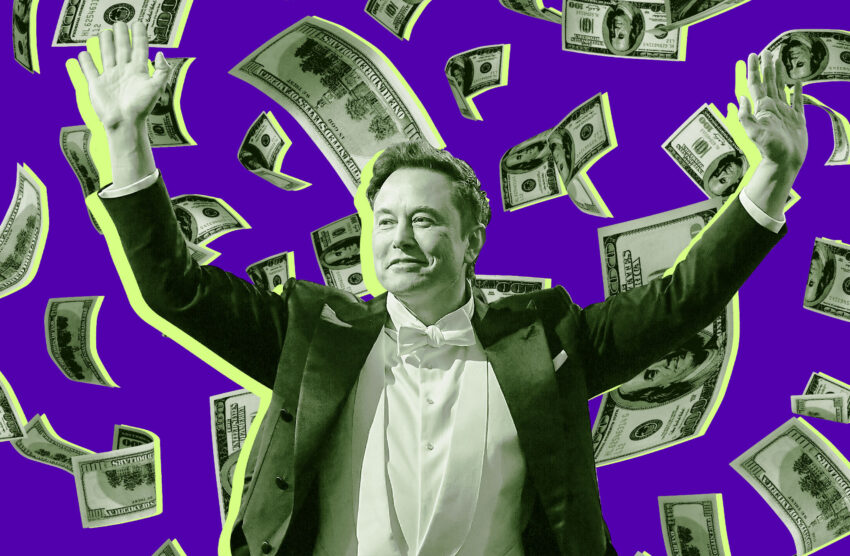
tesla rehashing old threats to get shareholders Tesla’s board of directors has issued a stark warning to shareholders: approve Elon Musk’s unprecedented $1 trillion pay package or risk losing him as CEO.
tesla rehashing old threats to get shareholders
Background on the Pay Proposal
The upcoming shareholder vote, scheduled for November 6, is pivotal for Tesla as it seeks to secure approval for Musk’s staggering compensation package. This proposal is not merely a continuation of past practices; it represents an escalation in the scale of executive compensation that has already drawn scrutiny from various stakeholders. Musk, who is already among the wealthiest individuals globally, stands to gain even more wealth should the package be approved.
Robyn Denholm, Tesla’s board chair, has taken a proactive stance in advocating for this proposal. In a letter to shareholders, she emphasized the potential consequences of not retaining Musk as CEO. “Without Elon, Tesla could lose significant value, as our company may no longer be valued for what we aim to become: a transformative force reimagining the fundamental building blocks of mobility, energy, and labor,” she stated. This rhetoric echoes sentiments expressed in previous years, where the board has framed Musk’s leadership as essential to the company’s future.
History of Musk’s Compensation Packages
This isn’t the first time Tesla’s board has leveraged the threat of Musk’s departure to rally shareholder support. Last year, shareholders faced a similar ultimatum when they were asked to approve a $55 billion pay package for Musk, which at the time was the largest compensation package ever considered for a CEO. Ultimately, shareholders approved that package, despite concerns from various sectors regarding its size and implications for corporate governance.
The current proposal dwarfs last year’s package, raising questions about the appropriateness of such a massive payout. Critics argue that the board’s reliance on Musk’s influence to secure approval for these packages raises ethical concerns. The board’s past actions have been scrutinized in court, where it was found that Musk had undue influence over his own compensation, leading to a voiding of the previous package by a Delaware court.
Legal Challenges and Corporate Governance
The legal backdrop surrounding Musk’s compensation is complex. A Delaware court ruled last year that Musk’s pay package, valued at over $50 billion, was flawed and unfair to shareholders. Despite shareholders voting twice to approve the compensation, the court upheld its ruling, citing Musk’s significant influence over the board’s decisions. Tesla has since appealed this ruling to the Delaware Supreme Court, indicating that the legal challenges surrounding Musk’s compensation are far from resolved.
In a strategic move, Musk has also initiated a vote to relocate Tesla’s incorporation from Delaware to Texas. This shift is significant; Texas lacks the extensive corporate legal precedents that Delaware has developed over decades. By moving to Texas, Musk may be attempting to create a more favorable legal environment for his compensation packages and corporate governance practices.
Stakeholder Reactions
As the November vote approaches, various stakeholders have voiced their opinions on the proposed pay package. Proxy advisory firms Institutional Shareholders Service (ISS) and Glass Lewis have both recommended that shareholders reject the package. They argue that the compensation is excessive and reflects a board that has been unduly influenced by Musk. In response, Musk has labeled these advisory firms as “corporate terrorists,” a remark that underscores the contentious atmosphere surrounding the vote.
Despite this pushback, Tesla’s board appears confident that shareholders will approve the package. Denholm’s outreach efforts, including rare interviews, aim to galvanize support ahead of the vote. The board is banking on positive momentum from Tesla’s third-quarter sales, which have seen an uptick due to consumer interest in the expiring $7,500 tax credit for electric vehicles. However, this boost may be short-lived, as Musk himself has acknowledged that earnings are likely to decline in the coming quarters.
Market Conditions and Future Outlook
The current market conditions present both opportunities and challenges for Tesla. While the company has experienced a surge in sales, the expiration of the tax credit could lead to a significant drop in demand. Additionally, Tesla faces increasing competition from traditional automakers and new entrants in the electric vehicle market. The company’s product lineup is aging, and it has yet to demonstrate that its approach to self-driving technology will provide a competitive edge.
Moreover, regulatory credits, which have historically contributed to Tesla’s revenue, are set to diminish. Tariffs and other economic factors are also exerting pressure on the company’s bottom line. These challenges raise questions about the sustainability of Tesla’s growth and the effectiveness of its current strategies.
The Broader Implications of Musk’s Leadership
Denholm’s letter to shareholders largely sidesteps these pressing issues, focusing instead on the necessity of retaining Musk as CEO. By framing the vote as a binary choice between Musk’s leadership and potential decline, the board is urging shareholders to double down on a strategy that has not fully addressed the company’s long-term challenges. This approach raises concerns about the board’s commitment to responsible corporate governance and its ability to navigate the complexities of the evolving automotive landscape.
Musk’s political engagements and controversial statements have also sparked debate among shareholders. His support for various political figures and movements, including his association with President Donald Trump and far-right parties in Europe, has drawn criticism. Additionally, his actions on social media, including controversial remarks and decisions regarding platform moderation, have led to questions about the impact of his leadership on Tesla’s brand and reputation.
Conclusion: A Pivotal Moment for Tesla
The upcoming shareholder vote represents a critical juncture for Tesla. As the board seeks to secure approval for Musk’s unprecedented compensation package, it faces significant scrutiny from various stakeholders. The legal challenges surrounding Musk’s pay, coupled with the company’s market conditions and competitive landscape, create a complex environment for decision-making.
Ultimately, the decision made by shareholders on November 6 will have far-reaching implications for Tesla’s future. If they choose to approve the pay package, they may be endorsing a model of corporate governance that prioritizes executive compensation over long-term sustainability. Conversely, a rejection of the package could signal a desire for a more balanced approach to governance and a reevaluation of the company’s strategic direction.
As Tesla navigates this pivotal moment, the eyes of investors, analysts, and the broader public will be watching closely. The outcome of this vote could shape not only the future of Tesla but also set a precedent for executive compensation practices across the corporate landscape.
Source: Original report
Was this helpful?
Last Modified: October 27, 2025 at 10:42 pm
3 views















